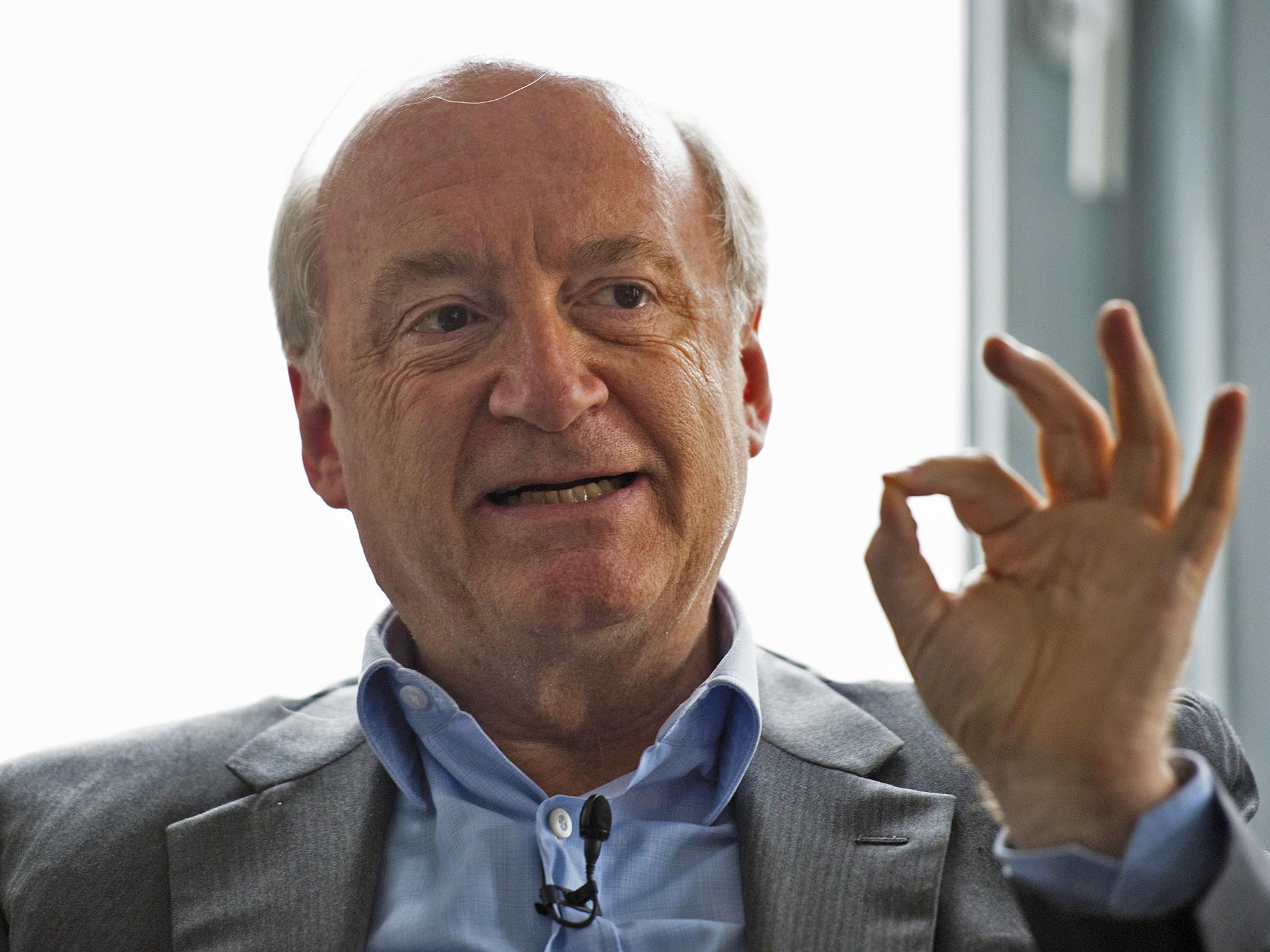EU referendum: Would Brexit destroy the European Union?
John Lichfield examines how the continent would react in the event of a British vote to leave the economic bloc

For Nigel Farage, Nigel Lawson and Michael Gove, Brexit is only the beginning. A UK vote for secession on Thursday would, they hope, eventually destroy the evil empire of Brussels and free 27 other nations from the yoke of Eurocracy.
One man’s hopes are another man’s fears. The former Conservative leader, William Hague, once a Eurosceptic himself, has warned that the death of the EU might return Europe to its dark days of poisonous tribal hatreds and beggar-my-neighbour economic policies.
The former Irish Taoiseach John Bruton agrees. “I worry most not about the technicalities but about the destructive forces that this could unleash, not just in the UK but across the continent,” Mr Bruton said. “It is the potential undoing of 70 years of statesmanship.”
Can the European Union survive Brexit? And, if so, in what form? And should Britons care? Short-term collapse is unthinkable. EU leaders would attempt to close ranks against a common enemy – Britain. By making the British departure negotiations as miserable as possible, EU governments would seek to prevent the contagion from spreading across the continent.
They would fail. Brexit would embolden and encourage Eurosceptic forces of both the right and left in the European Union’s heartland.
In France, whatever the result this week, the Front National leader, Marine Le Pen, will make “Frexit” the core of her campaign in the presidential election next spring. She is unlikely to be the next President of the Republic, but her message will earn her new supporters from the nationalist left. If Britain is already in the European departure lounge, she might do uncomfortably well.
A recent pan-European poll by the Pew Research Centre found a steep rise of anti-EU sentiment in almost all member states and especially in France and two of the most Europe-minded founder countries, Italy and the Netherlands.
Much depends on how the 27 – and especially core member states such as France, Germany, Italy and the Netherlands – react. There will be a chorus of opinion, led by the former French President Nicolas Sarkozy, pushing for a “refoundation” of the EU with a “hardcore” of some of the eurozone states and an outer, looser circle of the newer, poorer states to the east and the south. There will also be demands by unrecontructed European federalists, such as former Belgian Prime Minister Guy Verhofstadt, for a spectacular reaffirmation of European faith. The British have gone? Good riddance, they will say. We can now press ahead with “more Europe” and a “leap forward” towards a true European government.
There is also a view, in Spain and on the French centre-left, that a British vanishing act would allow a shift away from open markets towards a more “political” (that is, protectionist) EU.
One of the most far-seeing European statesmen Hubert Védrine, the former French foreign minister, says that all these approaches could drive the union to its ruin. The divorce between popular feeling and the “elites” who support the European idea has gone far beyond the borders of Britain, he says. If the 27, or even some of the 27, try to press on with more European integration without popular support, there will be a backlash that could destroy the EU.
Mr Védrine calculates that there is at most 1 per cent approval across the continent for the “United States of Europe”, so feared by the Daily Express or the Daily Mail. There is a bloc of 15 to 25 per cent of ferocious anti-Europeans of left and right, There is a similar-sized bloc of moderate pro-Europeans, also of both left and right.

Up to 60 per cent of voters in most EU countries are now, he says, “Eurosceptic” in the sense of doubtful about the capacity of the EU to deliver its promise of greater prosperity and its capacity to handle the middle-east migrant crisis. To try to win over this majority with “more Europe” or a “hard-core Europe” would, Mr Védrine says, be “like treating an allergy with high doses of allergy-inducing products.”
Mr Védrine says that the EU should treat Brexit, if it happens, as a warning, not a a rallying cry. A pause should be called on European integration. There should be a “refounding” conference to devise a more modest, practical EU, retaining some super-national powers, but focused on limited areas like trade, better management of the Euro, defence, internal security and the environment.
All grand plans, even Mr Védrine’s counsel of caution, will be laborious and dangerous to implement, a senior European commission official warns. “The danger is that the EU will be too divided – both divided between nations and between blocs of nations – to come up with any coherent post-Brexit strategy,” he said.
In the recent Pew poll, the most pro-EU nations were Poland and Hungary. And yet the hard-right governments of those countries believe that they can scoop the free trade and free movement advantages of membership while trampling EU rules on democracy and the rule of law.
The migrant crisis has divided the EU between a west which broadly but uneasily accepts multi-culturalism and an an east that rejects both. The eurozone crisis has divided the EU between a struggling “south” and a “north” that is reluctant to bail out its “lazy” and “incompetent” cousins.
A post-Brexit crisis would see the 27 try to close ranks against Britain. That will not solve the other crises. If the Sarkozy approach prevails, bundling the eastern and southern Europeans into a “second division”, it may deepen them to the point of rupture.
“Hooray,” say the Brexiteers-in-chief. The former Chancellor Nigel Lawson, said: “The idea that there is anything to be lost if [the EU] breaks up peacefully I find totally unconvincing… it has passed its sell-by date. I see no purpose in the EU at all.” Michael Gove speaks glibly of the “the democratic liberation of a whole continent”. Both men ignore the vital role of the EU in permitting the orderly passage of the eastern European and Baltic countries to something like democratic and open societies in the last two decades. That process is not finished; it still could (with enthusiastic support from Moscow) go into reverse.

A break-up of the EU – even a division of the EU into “rich” and “poor” – would not be a comfortable experience for a post-Brexit Britain. Inside or outside, the British economy would remain heavily inter-linked, and interdependent, with the prosperity and stability of our nearest neighbours.
The history of the past century and a bit suggests that attempts to distance or islolate Britain from the continent have unpleasant consequences – first for the continent and then for its biggest off-shore island.

The EU referendum debate has so far been characterised by bias, distortion and exaggeration. So until 23 June we we’re running a series of question and answer features that explain the most important issues in a detailed, dispassionate way to help inform your decision.
What is Brexit and why are we having an EU referendum?
Does the UK need to take more control of its sovereignty?
Could the UK media swing the EU referendum one way or another?
Will the UK benefit from being released from EU laws?
Will we gain or lose rights by leaving the European Union?
Will Brexit mean that Europeans have to leave the UK?
Will leaving the EU lead to the break-up of the UK?
What will happen to immigration if there's Brexit?
Will Brexit make the UK more or less safe?
Will the UK benefit from being released from EU laws?
Will leaving the EU save taxpayers money and mean more money for the NHS?
What will Brexit mean for British tourists booking holidays in the EU?
Will Brexit help or damage the environment?
Join our commenting forum
Join thought-provoking conversations, follow other Independent readers and see their replies
Comments